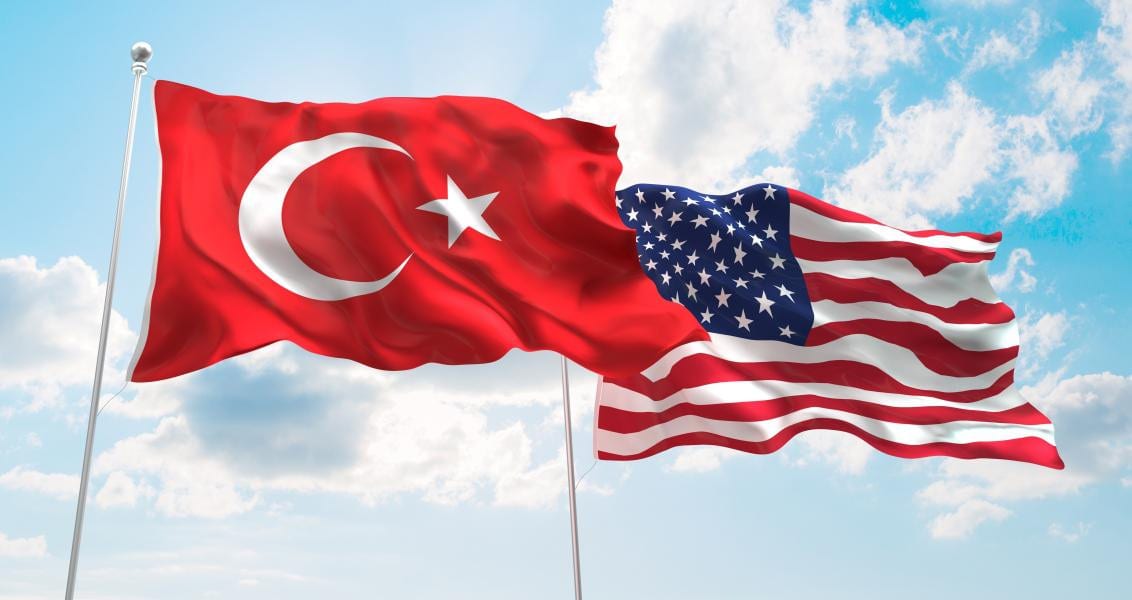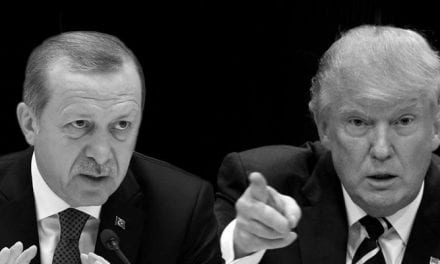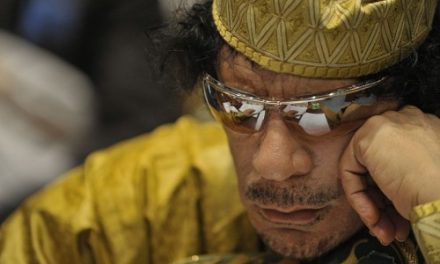By Edward G. Stafford, Ahval
David Satterfield’s testimony last week in Senate Committee hearings to assess his nomination as the next U.S. ambassador to Turkey highlights the issues most important to U.S. officials with regards to Turkey, and the limitations they face in pursuing those interests when Turkey’s leadership does not share the same views.
In Turkey’s March 31 municipal elections, a number of victorious Kurdish candidates in southeast Turkey were disqualified last week and replaced with candidates who had come in second, all of whom hailed from the ruling Justice and Development Party (AKP). In Istanbul, the new mayor was finally inaugurated on Wednesday, but the AKP continues to cite fraud and has called for the vote to be annulled and held again.
But more important to U.S.-Turkey relations are American efforts to influence President Recep Tayyip Erdoğan’s decision to buy Russia’s S-400 air defence systems, which could have severely negative consequences to Turkey’s security relations with the United States and NATO. The dust-up reveals just how little sway Washington has with Turkey’s president. Even the “positive” meeting that Erdoğan’s son-in-law, Treasury and Finance Minister Berat Albayrak, had with President Donald Trump this week has done little to weaken Turkey’s resolve to proceed with the S-400 deal.
Unlike his predecessors, Trump cares little for the internal political affairs of other countries unless they directly affect U.S. citizens or interests. Thus, Trump has focused on relations with Turkey to secure the release of American pastor Andrew Brunson and to encourage Turkey to distance itself from Iran.
The use of sanctions against ministers of Erdoğan’s government underlined the seriousness Trump attached to Brunson’s release. It must not be read, however, as concern for human rights or the rule of law as a pillar of U.S.-Turkey relations. Trump used sanctions to secure Brunson’s release because Brunson was a U.S. citizen, and one with a vocal and politically influential group backing him in the United States. Trump has shown no similar inclination regarding the incarceration on spurious charges of countless journalists, politicians, and academics.
Trump has had less success inducing Erdoğan to curb ties with Iran, for the obvious reason that they share a border, with all the economic, cultural, and political links that implies, along with Turkey’s ongoing need for Iranian energy resources. Developing alternatives to Iranian oil and natural gas is not as easy as releasing a single detainee.
Regarding the municipal elections, both in Turkey’s southeast and in Istanbul, Trump views the matter as a purely Turkish affair. Also, Trump advisors surely know that even if the United States wished to affect events regarding the election results, the resentment in response to any indications that Washington sought to influence Erdoğan’s or the election commissions’ decision making would be counter-productive. The website of the U.S. embassy in Turkey , with its silence on the elections outcome, testifies to this.
In his testimony, Satterfield reiterated the U.S. position that “by moving ahead with its purchase of the Russian S-400 defence system, Turkey puts its participation in the F-35 programme at risk and faces potential sanctions under CAATSA .”
These remarks, delivered on April 11, seemed to have engendered an April 15 response from Turkish Defence Minister Hulusi Akar, who reportedly stated that U.S. comments about terminating Turkish participation in the F-35 programme were unhelpful and not to be expected from an ally.
Turkish presidential advisor Ibrahim Kalın went even further, saying, “rather than using the language of threats from sanctions against Turkey , I think the people here in Congress, as well as this administration, should understand Turkey ‘s security concerns.” Satterfield’s testimony was of course noted in Ankara and did little to shift Turkey from its planned course of action regarding S-400s.
In the same way, the April 16 meeting in the Oval office between Trump and Albayrak seems not to have opened the door to any compromise on the part of either Trump or Erdoğan. Of course, given his history of blindsiding his senior advisors and even cabinet secretaries, the possibility that Trump will not allow the termination of Turkey’s participation in the F-35 programme or the imposition of sanctions under CAATSA remains.
If Trump were to do that, however, it would put him at odds with many in his own party and the recent testimony of his nominee as U.S. ambassador to Turkey – testimony certainly cleared by the White House. More likely, Trump will not stand in the way of Senate action against Turkey if Erdoğan goes forward with acquiring the S-400, though he could limit the actions to suspending Turkish participation in the F-35 programme and not support the imposition of CAATSA sanctions.
Finally, Trump is now in a locked-in position to respond in some way if Turkey goes forward with acquisition of the S-400 system. He would look weak if he did nothing; he would also be accused of helping Russia access U.S. technology. Yet the Turkish attitude, as expressed by Kalın, remains that the United States cannot afford to lose Turkey .
Certainly the United States does not wish to lose Turkey as a friend and NATO ally. That said, if Erdoğan and his advisors dismiss U.S. concerns and show no willingness to work out a mutually satisfactory arrangement within the context of their defence and security partnership, we could see a sharpening of Erdoğan’s determination to exit the Atlantic alliance in fact if not by formal declaration.



















